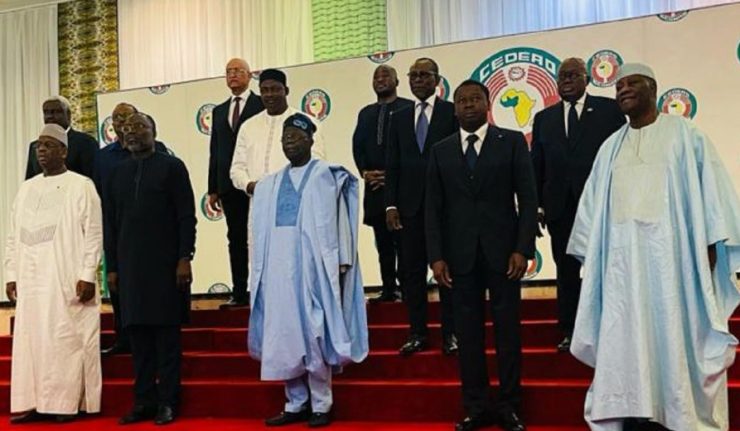By Ayo Kehinde
The European Union (EU) and the Economic Community of West African States (ECOWAS), have strongly opposed recent threats by the United States President, Donald Trump, to cut aid to Nigeria and launch direct military action over alleged “mass slaughter” of Christians in the country.
Trump, last week, issued a blunt warning, vowing to halt American aid and consider military action if authorities in Nigeria fail to stop the killing of Christians in the country.
“If the Nigerian Government continues to allow the killing of Christians, the U.S.A. will immediately stop all aid and assistance to Nigeria, and may very well go into that now disgraced country, ‘guns-a-blazing,’ to completely wipe out the Islamic Terrorists who are committing these horrible atrocities. I am hereby instructing our Department of War to prepare for possible action. If we attack, it will be fast, vicious, and sweet, just like the terrorist thugs attack our CHERISHED Christians!” Trump wrote on his Truth social media platform on Saturday after designating Nigeria as a “Country of Particular Concern” earlier Friday.
While China opposed Trump’s Threat, the EU and ECOWAS cautioned against framing Nigeria’s complex security challenges through a narrow religious lens.
EU Spokesperson for Foreign Affairs and Security, Anouar El Anouni, in a formal statement, reaffirmed the bloc’s commitment to defending religious freedom while urging global partners to avoid rhetoric capable of escalating tensions.
He expressed solidarity with victims of violence in Nigeria, particularly in regions affected by terrorism and communal attacks, emphasising that all communities have suffered significant losses.
“The EU expresses its solidarity with all the communities and families affected by the violence, including the recent large-scale attacks in the Southern belt of Nigeria and in the Northeast”, El Anouni stated, adding that the European bloc is aware of ongoing discussions in Washington regarding Nigeria, noting that Europe continues to prioritise constructive engagement and support for peace-building in the country.
According to him, the EU’s position remains anchored on upholding freedom of religion, promoting peaceful coexistence, and protecting vulnerable groups irrespective of identity or faith.
El Anouni stressed that Nigeria’s security crisis is driven by multiple factors, including terrorism, criminality, climatic pressure, and ethnic tensions, urging caution against reducing the conflicts to a purely religious narrative.
“The EU recognises the many factors behind the violence in Nigeria. Let us note that religion is only one of these factors, and only in certain instances”, he said.
El Anouni further disclosed that the EU continues to work closely with Nigerian authorities across humanitarian, peace-building, governance, and development programmes aimed at preventing violence and assisting displaced persons.
Similarly, ECOWAS issued a firm response, warning that inflammatory statements could undermine regional efforts and embolden extremist elements already exploiting ethno-religious divisions.
The West African bloc stressed that terrorist attacks in the region do not target a single religious group, insisting that both Muslims and Christians have been victims across multiple countries.
“The perpetrators of this violence target innocent civilians of all religious denominations, including Muslims, Christians, and adherents to other religions”, ECOWAS stated, describing claims of genocide against a specific group as “false and dangerous”.
It urged international partners, including the United Nations, to stand firmly with West African governments in combating terrorism and violent extremism rather than amplifying narratives that weaken social cohesion.
ECOWAS appealed for unified global support, reaffirming that terrorism in the region seeks to destabilise communities indiscriminately and must be addressed through coordinated security and humanitarian strategies.
The bloc further called for strengthening collaborative intervention frameworks and avoiding public statements that risk misinforming global audiences about the true nature of the insecurity.



